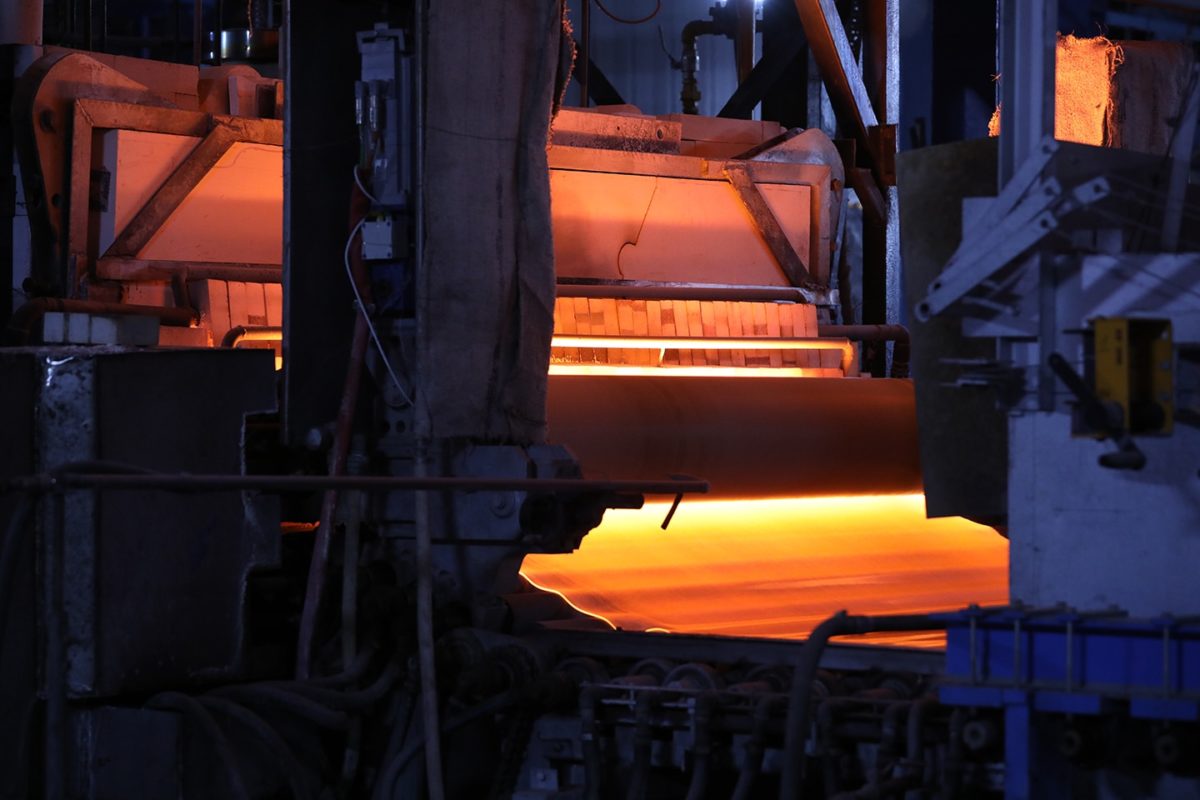From pv magazine India
Borosil Renewables will expand its solar panel glass manufacturing capacity from 450 tons per day to 2,000 as it continues to see strong growth in demand. The company is adding a third solar line with a capacity of 550 metric tons which is expected to start production by September and will enhance the manufacturer’s daily production capacity to 1,000 tons.
Another doubling in capacity, through the addition of two more solar glass lines, has already been approved by the company’s board. Of those, one is expected to come on stream in the third quarter of next year.
Thinner glass – 2mm, 2.5mm, and 2.8mm – occupies almost 30% of Borosil's production capacity at present and the company expects its 2mm products to account for at least a similar slice of its expanded capacity, based on rising demand for bifacial solar panels.
pv magazine print edition
Borosil recorded net sales of INR169 crore ($22.3 million) in the October-to-December quarter, up 20% on the figures posted a year earlier. Exports, including to customers in special economic zones, stood at INR44.6 crore ($5.89 million) to account for 26.5% of quarterly turnover. The glassmaker banked net profits of INR45.7 crore for the three-month window.
That meant net sales for the nine months of the fiscal year to the end of December came in at INR465 crore, up 51% on the same period of fiscal year 2021.
The manufacturer has said it expects domestic demand to be driven by the big volumes of solar capacity which are being commissioned by government policies.
Presenting the company’s report card for the third quarter of the fiscal year, Borosil executive chairman PK Kheruka said: “The government has announced three major steps underlining its commitment to the establishment of a strong domestic solar manufacturing ecosystem. The first is the announcement of an additional allocation of INR19,500 crore ($2.58 billion) under the PLI [production-linked incentive] scheme [to incentivize manufacturing capacity for] solar cells and modules, raising the total allocation to a very impressive INR24,000 crore ($3.17 billion). The second is the formal announcement of basic customs duty on solar panels at 40%, and on solar cells at 25%, effective from April 1, 2022. The third is the scheme of the approved list of models and manufacturers introduced some months ago, whereby effectively only Indian manufacturers of solar modules are able to supply to many types of government tenders, which have now been extended to open access and net metering projects as well. As a result, we are expecting that large incremental capacities, already announced, will now be implemented.”
Production boom
“Even though 14GW of solar module manufacturing capacity exists in India, actual production was about 5.5GW during the financial year 2021. We see installed capacity rising to 50GW of solar panels within the next three years. This will give a great boost to the domestic production of solar equipment in India, causing a major shift away from imports from China to sourcing from domestic manufacturers. Consequently, we expect increased demand for solar glass in India.”
Kheruka said Borosil is in advanced discussions with many domestic manufacturers seeking Indian-made solar glass. The manufacturer is also anticipating attractive future growth in exports on the back of an expected rise in the production of solar modules in major markets such as Europe and the USA.
This content is protected by copyright and may not be reused. If you want to cooperate with us and would like to reuse some of our content, please contact: editors@pv-magazine.com.




4 comments
By submitting this form you agree to pv magazine using your data for the purposes of publishing your comment.
Your personal data will only be disclosed or otherwise transmitted to third parties for the purposes of spam filtering or if this is necessary for technical maintenance of the website. Any other transfer to third parties will not take place unless this is justified on the basis of applicable data protection regulations or if pv magazine is legally obliged to do so.
You may revoke this consent at any time with effect for the future, in which case your personal data will be deleted immediately. Otherwise, your data will be deleted if pv magazine has processed your request or the purpose of data storage is fulfilled.
Further information on data privacy can be found in our Data Protection Policy.